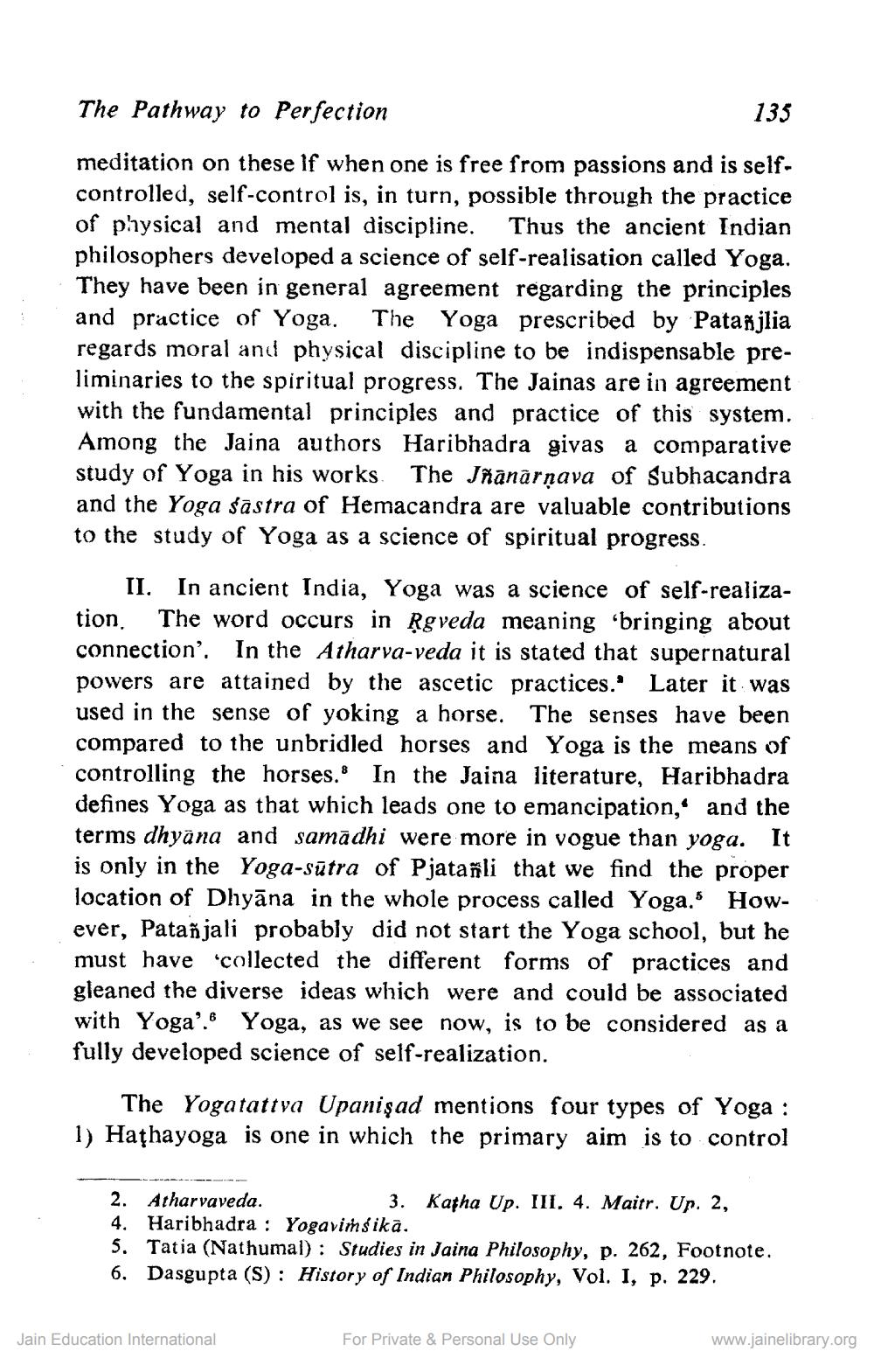________________
The Pathway to Perfection
135
meditation on these lf when one is free from passions and is selfcontrolled, self-control is, in turn, possible through the practice of physical and mental discipline. Thus the ancient Indian philosophers developed a science of self-realisation called Yoga. They have been in general agreement regarding the principles and practice of Yoga. The Yoga prescribed by Patañjlia regards moral and physical discipline to be indispensable preliminaries to the spiritual progress. The Jainas are in agreement with the fundamental principles and practice of this system, Among the Jaina authors Haribhadra givas a comparative study of Yoga in his works The Jñanārņava of Subhacandra and the Yoga sāstra of Hemacandra are valuable contributions to the study of Yoga as a science of spiritual progress
II. In ancient India, Yoga was a science of self-realization. The word occurs in æg veda meaning bringing about connection'. In the Atharva-veda it is stated that supernatural powers are attained by the ascetic practices. Later it was used in the sense of yoking a horse. The senses have been compared to the unbridled horses and Yoga is the means of controlling the horses. In the Jaina literature, Haribhadra defines Yoga as that which leads one to emancipation, and the terms dhyana and samadhi were more in vogue than yoga. It is only in the Yoga-Sūtra of Pjatanli that we find the proper location of Dhyāna in the whole process called Yoga. However, Patañjali probably did not start the Yoga school, but he must have collected the different forms of practices and gleaned the diverse ideas which were and could be associated with Yoga'.& Yoga, as we see now, is to be considered as a fully developed science of self-realization.
The Yogatattva Upanişad mentions four types of Yoga : 1) Hathayoga is one in which the primary aim is to control
2. Atharvaveda.
3. Katha Up. III. 4. Maitr. Ur. 2, 4. Haribhadra : Yogavimś ikā. 5. Tatia (Nathumal) : Studies in Jaina Philosophy, p. 262, Footnote. 6. Dasgupta (S): History of Indian Philosophy, Vol. I, p. 229.
Jain Education International
For Private & Personal Use Only
www.jainelibrary.org




